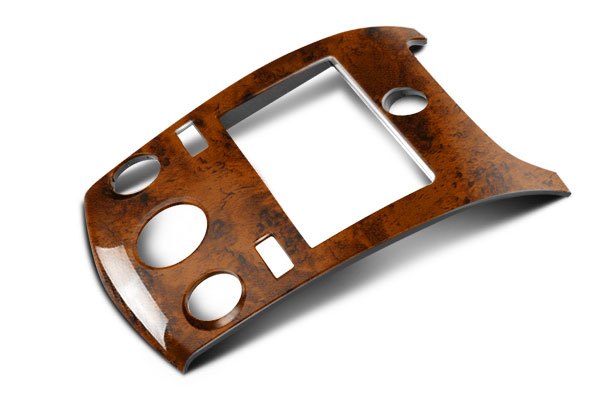دسته بندی ها
پمپ بنزین اسپرت آئودی A3 SPORTBACK E-TRON PREMIUM PLUS 2019 | قیمت پمپ بنزین اسپرت آئودی A3 SPORTBACK E-TRON PREMIUM PLUS 2019 | فروش پمپ بنزین اسپرت آئودی A3 SPORTBACK E-TRON PREMIUM PLUS 2019 | انواع پمپ بنزین اسپرت آئودی A3 SPORTBACK E-TRON PREMIUM PLUS 2019 | خرید پمپ بنزین اسپرت آئودی A3 SPORTBACK E-TRON PREMIUM PLUS 2019 یک قطعه ارتقا یافته می باشد که جزء آئودی A3 SPORTBACK E-TRON PREMIUM PLUS 2019 | لوازم یدکی آئودی A3 SPORTBACK E-TRON PREMIUM PLUS 2019 | لوازم آئودی A3 SPORTBACK E-TRON PREMIUM PLUS 2019 | قطعات آئودی A3 SPORTBACK E-TRON PREMIUM PLUS 2019 | قطعات یدکی آئودی A3 SPORTBACK E-TRON PREMIUM PLUS 2019 | لوازم اسپرت آئودی A3 SPORTBACK E-TRON PREMIUM PLUS 2019 و تیونینگ خودرو و همچنین سیستم سوخت رسانی اسپرت آئودی A3 SPORTBACK E-TRON PREMIUM PLUS 2019 | قیمت سیستم سوخت رسانی اسپرت آئودی A3 SPORTBACK E-TRON PREMIUM PLUS 2019 | فروش سیستم سوخت رسانی اسپرت آئودی A3 SPORTBACK E-TRON PREMIUM PLUS 2019 | انواع سیستم سوخت رسانی اسپرت آئودی A3 SPORTBACK E-TRON PREMIUM PLUS 2019 می باشد. وظیفه آن است به طور مداوم بنزین درون مخزن بنزین وجود دارد را به سمت موتور خودرو به حرکت در آورد .پمپ بنزین PERFORMANCE FUEL PUMPS & COMPONENTS یک توربین درون باک خودرو دارد که این توربین باعث به حرکت در آمدن بنزین می شود این امر علاوه بر آن از ثابت ماندن بنزین درون باک جلوگیری می کند.این توربین که به صورت برقی می باشد زمانی که خودرو روشن باشد بنزین را با فشار به سمت موتور خودرو می کشد علاوه بر آنکه مسافت طولانی فاصله صندوق خودرو و کاپوت خودرو را طی می کند . همانطور که قبلا گفتیم خراب شدن و گاهی نیم سوز شدن این قطعه مهم باعث ریپ های شدید در خودرو به خصوص در پستی و بلندی ها می شود پس در این مواقع گوشه ذهن خود را به پمپ بنزین بگنجانید.برای افزایش قدرت خودرو باید هوا و سوخت بیشتری در موتور خود داشته باشید. ما کاربراتورهای بزرگ، تزریق انژکتورهای جریان بالا و حتی سیستم های EFI را کامل کرده ایم تا این اتفاق بیفتد، اما این قطعات نمی توانند کار خود را انجام دهند مگر اینکه با سوخت کافی تامین شوند. برای اینکه اطمینان حاصل کنید که حجم سوخت و فشار مناسب شما باید از منبع تامین شود - پمپ سوخت و ما دارای پمپ های مکانیکی و مخزن با سوخت بالا و یا پمپ های سوخت الکتریکی خارجی هستیم که می تواند موتور شما را با سوخت مورد نیاز خود تامین کند .پمپ های سوخت عمودی معمولا به میزان گالن در هر ساعت (GPH) یا لیتر در ساعت (LPH) می باشند. در موتور دریچه ای باز، یک موتور به طور طبیعی بی نظیر نیاز به حدود 0.5 پوند دارد. سوخت در هر اسب بخار در ساعت، یک موتور القایی نیتروس یا اجباری در حدود 0.75 پوند است. سوخت در هر اسب بخار در ساعت. اگر شما اسب بخار تقریبی موتور خود را می دانید، می توانید پمپ های مورد نیاز خود را با ضرب اسب بخار به میزان 0.5 یا 0.75 محاسبه کنید و سپس شکل حاصل را به 6.2 تقسیم کنید که وزن آن در پوند یک گالن بنزین است.با استفاده از فرمول فوق می توانیم تعیین کنیم که موتور خیابانی به طور طبیعی 500 اسب بخار سالم به یک پمپ نیاز دارد که حداقل 40 گیگاهرتز (500 × 0.5 = 250 / 6.2 = 40.32) جریان یابد، در حالی که 800 اسب بخار سوار توربو شارژ نیاز به حداقل 97 گیگاهرتز (800 = 0.75 = 600 / 6.2 = 96.77). خوب است که از یک پمپ استفاده کنید که بیشتر از آنچه موتور شما نیاز دارد جریان می یابد و اگر اختلاف بین حجم مورد نیاز و خروجی پمپ عالی باشد، می تواند از طریق یک تنظیم کننده فشار به مخزن بازگردد. هرگز از یک پمپ با GPH کمتری استفاده نکنید چون موتور شما سوخت گرسنه خواهد بود، که نه تنها موجب عملکرد ضعیف می شود، بلکه آسیب موتور ممکن است ناشی از شرایط ناب.پمپ های مکانیکی موتور به مدت دهه به سوخت رسانی به کربورترها کمک کرده اند، اما فقط به دلیل اینکه شما یک کاربرو بزرگتر را نصب کرده اید و می خواهید اسب بخار بیشتری تولید کنید به این معنی نیست که شما مجبور به تغییر پمپ الکتریکی می شوید. ما دارای پمپ های مکانیکی هستیم که به اندازه 130 GPH جریان دارد، با پورت های ورودی و خروجی بزرگتر برای رسیدگی به حجم. پمپ های مکانیکی پایین GPH به طور معمول سوخت را در فشار کمتری ارائه می دهند که برای کربورتور مناسب است، حدود 6 اسب بخار، اما پمپ های GPH بزرگتر ممکن است با یک تنظیم کننده برای کاهش فشار سوخت مورد استفاده قرار گیرند. اگر شما تصمیم به تغییر به یک پمپ الکتریکی، ما ارائه می دهیم صفحات برای محبوب ترین برنامه های کاربردی برای مهر و موم کردن باز کردن پمپ مکانیکی بلوک موتور.صرف نظر از اینکه سیستم سوخت شما پیکربندی شده است، ما پمپ سوخت الکتریکی داریم. ما پمپ های خارجی الکتریکی را با یک پسی فشار پایین که برای استفاده با کربورترها آماده شده است، تنظیم می کنیم. ما پمپ ها برای سیستم های EFI بازگشتی و بازگشتی داریم. بسیاری از پمپ های موجود در مخزن ما جایگزینی مستقیم برای پمپ OE هستند و دیگران نیاز به اصلاح حداقل دارند. ما پمپ های خارجی با فیلترها و پمپ های خارجی برای استفاده با مخزن های پر فشار داریم که از گرسنگی سوخت جلوگیری می کنند، اگر مخزن مخزن سوخت کافی برای جلوگیری از انفجار سوخت از وانت باشد. اکثر پمپ های ما برای استفاده با بنزین طراحی شده اند، اما برخی از آنها اتانول سازگار هستند و دیگران می توانند با سوخت های الکتریکی و بنزین رانندگی کنند.
................................................................................................................
2019 audi a3 sportback e tron premium plus performance fuel pump | 2019 audi a3 sportback e tron premium plus performance fuel pump sale | 2019 audi a3 sportback e tron premium plus performance fuel pump buy | 2019 audi a3 sportback e tron premium plus performance fuel pump price is an upgraded part that is 2019 audi a3 sportback e tron premium plus | 2019 audi a3 sportback e tron premium plus parts | 2019 audi a3 sportback e tron premium plus accessory | 2019 audi a3 sportback e tron premium plus parts sale | 2019 audi a3 sportback e tron premium plus parts buy | 2019 audi a3 sportback e tron premium plus parts price equipment and car tuning as well as performance parts of the car. The job of the sport gas pump is to constantly move the gasoline in the gasoline tank to the car engine. In addition, it prevents the gasoline in the tank from being fixed. This turbine, which is electric, pulls the gasoline towards the car engine when the car is turned on, in addition to the long distance between the car trunk and the car hood. he does . As we said before, the breakdown and sometimes half-burning of this important part causes severe rips in the car, especially at high altitudes, so in these cases, put the corner of your mind to the gas station. To increase the power of the car, you need air and fuel. Have more on your engine. We've completed large carburetors, high-injection injectors, and even EFI systems to make this happen, but these parts can't do their job unless they have enough fuel. To make sure your fuel volume and pressure are right from the source - fuel pumps and we have mechanical pumps and high fuel tanks or external electric fuel pumps that can supply your engine with the fuel it needs Vertical fuel pumps are usually gallons per hour (GPH) or liters per hour (LPH). In an open valve engine, a naturally aspirated engine requires about 0.5 pounds. Fuel per horsepower per hour is a nitros induction or forced engine of about 0.75 lbs. Fuel per horsepower per hour. If you know the approximate horsepower of your engine, you can calculate the pumps you need by multiplying the horsepower by 0.5 or 0.75 and then dividing the result by 6.2, which weighs a pound per gallon of gasoline. Using the above formula we can determine that a street engine normally requires 500 healthy horsepower with a pump running at least 40 GHz (500 × 0.5 = 250 / 6.2 = 40.32), while 800 horsepower is turbocharged. Requires at least 97 GHz (800 = 0.75 = 600 / 6.2 = 96.77). It is a good idea to use a pump that flows more than your motor needs, and if the difference between the required volume and the pump output is excellent, it can be returned to the tank via a pressure regulator. Never use a pump with a lower GPH as your engine will run out of fuel, which not only causes poor performance, but engine damage may be due to poor condition. Mechanical engine pumps have helped refuel carburetors for decades. But just because you have a larger carburetor and want to produce more horsepower does not mean that you have to change the electric pump. We have 130 GPH mechanical pumps with larger inlet and outlet ports to handle the volume. Low GPH mechanical pumps typically deliver fuel at a lower pressure, which is suitable for a carburetor, about 6 hp, but larger GPH pumps may be used with a regulator to reduce fuel pressure. If you decide to switch to an electric pump, we offer plates for the most popular applications to seal the opening of the mechanical pump of the engine block. Depending on how your fuel system is configured, we have an electric fuel pump. We adjust the external electric pumps to a low pressure pass prepared for use with carburetors. We have pumps for return and return EFI systems. Many of the pumps in our tank are a direct replacement for the OE pump, and others require minimal modification. We have external pumps with filters and external pumps for use with high pressure tanks that prevent fuel starvation, if the fuel tank is sufficient to prevent fuel explosion from the van. Most of our pumps are designed for use with gasoline, but some are ethanol compatible and others can run on electric and gasoline fuels.
اکثر پمپ بنزین اسپرت آئودی A3 SPORTBACK E-TRON PREMIUM PLUS 2019 موجود در بازار اصلی ، تایلندی ، تایوانی ، چینی و ساخت کشور تولید کننده خودرو میباشند.
قیمت پمپ بنزین اسپرت آئودی A3 SPORTBACK E-TRON PREMIUM PLUS 2019 به متریال استفاده شده در ساخت و چگونگی تولید پمپ بنزین اسپرت و از همه مهمتر ساخت کدام کشور است دارد
باید از جایی که پمپ بنزین اسپرت آئودی A3 SPORTBACK E-TRON PREMIUM PLUS 2019 خریداری میکنیم با فروشنده تمام موارد رو که مد نظر مون هست چک کنیم از قبیل : ساخت کجاس ، چه قیمت است و آپشن های که پمپ بنزین اسپرت دارد و .....
از جایی که تخصص آنها لوازم اسپرت آئودی A3 SPORTBACK E-TRON PREMIUM PLUS 2019 است و بهترین مشاوره رو در خرید پمپ بنزین اسپرت میدن
Most of the 2019 audi a3 sportback e tron premium plus performance fuel pump available in the world depend on which country it is produced in, but usually the 2019 audi a3 sportback e tron premium plus performance fuel pump are original,
Chinese
The price of the 2019 audi a3 sportback e tron premium plus performance fuel pump depends on the material used in the production of the 2019 audi a3 sportback e tron premium plus performance fuel pump, most importantly, in which country it is made
since their specialty is 2019 audi a3 sportback e tron premium plus performance fuel pump they give the best advice on buying 2019 audi a3 sportback e tron premium plus performance fuel pump and after sales services
we should check with the seller all the things that we want from the place where we buy the 2019 audi a3 sportback e tron premium plus performance fuel pump, such as: where is it made, what is the price, and the options that the 2019 audi a3 sportback e tron premium plus performance fuel pump has, etc
مارا دنبال کنید
Copyright © 2016-2020 KHODROID.com. All rights reserved.
طراحی سایت توسط نونگار پردازش











